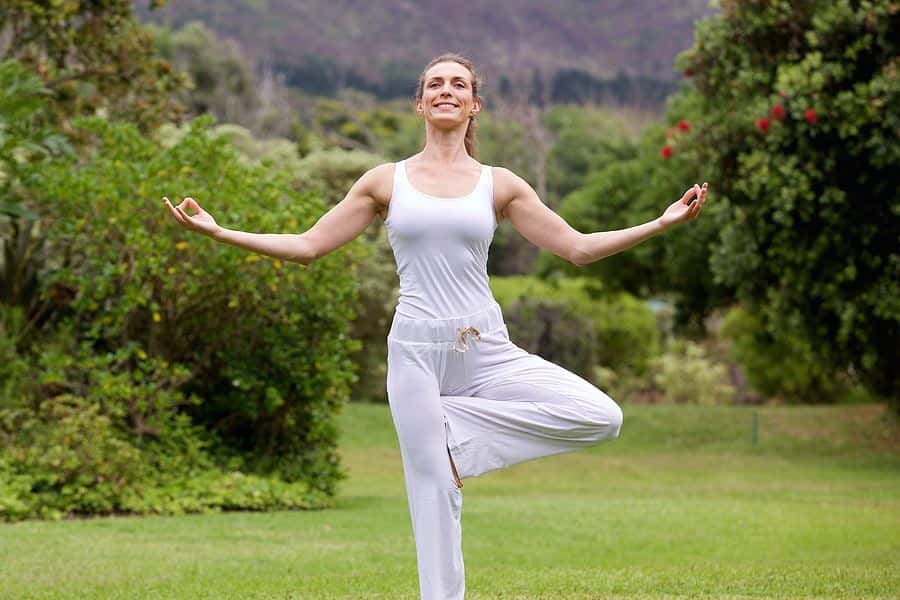
Can you balance on one leg for just ten seconds? This isn’t even a challenge for most kids and younger adults, but it may become more difficult as we grow older. If it does, bigger problems may lie ahead.
People Who Balanced on One Leg for at Least 10 Seconds Lived Longer:
A study of 1,700 Brazilians between 51 and 75 years old found that those who were able to balance on one leg for ten seconds were significantly less likely to die during the next seven years (British Journal of Sports Medicine, June 21, 2022). On average, these volunteers were 61 years old.
About one-fifth of the subjects in the study could not stand on one leg for ten seconds. More than 17 percent of them died during the study follow-up, compared to just 5 percent of those who balanced beautifully. The older people got, the less likely they were to be able to keep their balance for ten seconds.
According to the authors, falls are the second leading cause of injury and death around the world, particularly among those over 60. They recommend that doctors ask their older patients to balance on one leg for ten seconds as part of a clinical evaluation. To read the instructions and view a photograph of the balancing act, you may wish to consult the publication here.
Yoga for Balance:
While the yoga pose illustrated on this page is much more elaborate than needed for this exercise, yoga can be helpful. Here are links to a discussion of yoga for balance and standing up from a chair. The author is renowned yoga expert Carol Krucoff, C-IAYT, E-RYT. She also offers this You-Tube video with advice on improving balance.
Can You Improve Your Balance?
Scientists have tested some interventions to see if older people can maintain or improve their ability to balance on one leg. A European study found that three months of balance and strength training was safe and helpful (Gerontology, 2016). People who exercised with supervision improved the most.
Playing Ball:
Another study showed that playing catch with a medicine ball can improve balance in the elderly (Experimental Brain Research, Jan. 6, 2015). Catching a heavy ball forces the brain to make postural adjustments that may translate to everyday life. The volunteers in this study enjoyed the training exercise and appeared to benefit with better balance.
We don’t know whether people who swim, dance or walk regularly do better standing on one leg. However, staying active has been associated with better health.
Citations
- Araujo CG et al, "Successful 10-second one-legged stance performance predicts survival in middle-aged and older individuals." British Journal of Sports Medicine, June 21, 2022. DOI: 10.1136/bjsports-2021-105360
- Lacroix A et al, "Effects of a supervised versus an unsupervised combined balance and strength training program on balance and muscle power in healthy older adults: A randomized controlled trial." Gerontology, 2016. DOI: 10.1159/000442087
- Aruin AS et al, "Enhancement of anticipatory postural adjustments in older adults as a result of a single session of ball throwing exercise." Experimental Brain Research, Jan. 6, 2015. DOI https://doi.org/10.1007/s00221-014-4144-1

